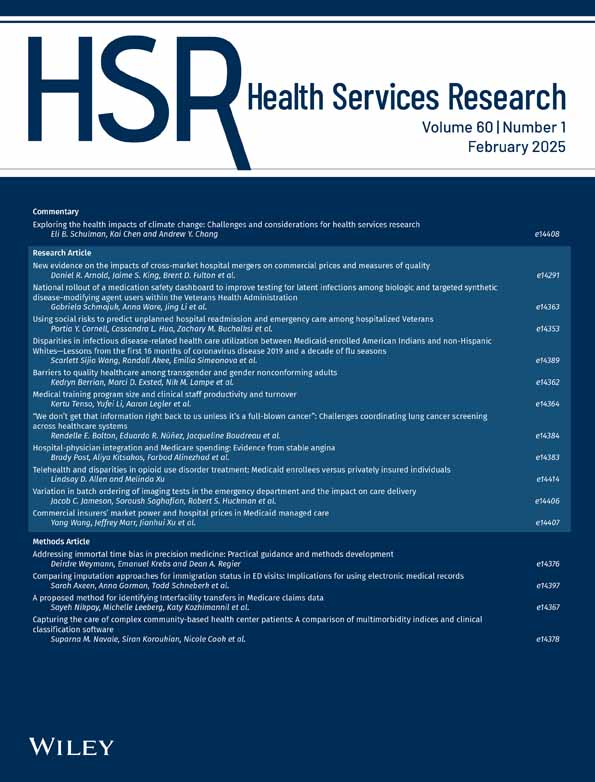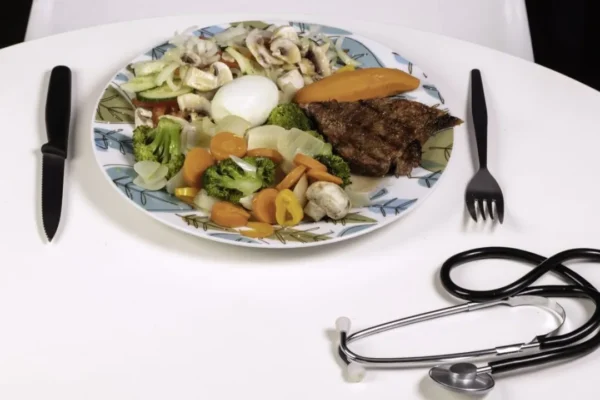1/07/25 –
Abstract
Objective
To assess mental health related outcomes of Recipe4Health, a multisectoral social care partnership implementing produce prescriptions with or without group medical visits (GMVs).
Study Setting and Design
Recipe4Health was implemented at five community health centers from 2020 to 2023. Primary care teams referred patients with food insecurity and/or nutrition-sensitive chronic conditions (e.g., diabetes, depression) to 16 weeks of Food Farmacy (produce prescriptions) with the option of GMV participation. We used a convergent mixed-methods design including survey and interview data.
Data Sources and Analytic Sample
We conducted (1) participant surveys pre- and post-intervention and (2) semi-structured interviews with Recipe4Health participants and partner organization staff. Linear mixed effects models examined changes in mental health and related outcomes. Interviews were analyzed using codebook thematic analysis.
Principal Findings
Program participants were middle-aged, primarily women, and from diverse racial/ethnic backgrounds (majority Latine and Black). At baseline, moderate or severe depression and/or anxiety symptoms were reported by 77/188 (41%) of Food Farmacy-only participants, and 113/284 (40%) of Food Farmacy +GMV participants. Among Food Farmacy-only participants, post-intervention depression and anxiety symptoms significantly improved only among those who did not have baseline depression/anxiety (PHQ9: −1.7 [95% CI: −2.8, −0.6]; GAD7: −1.8 [95% CI: −2.9, −0.8]). Among Food Farmacy +GMV participants, mental health symptoms improved regardless of baseline mental health; among those with baseline depression/anxiety: PHQ9: −2.4 (95% CI: −3.6, −1.2); GAD7: −0.9 (95% CI: −2.0, 0.1); among those without: PHQ9: −2.2 (95% CI: −3.2, −1.2); GAD7: −2.2 (95% CI: −3.1, −1.2). Improvements in social needs (food insecurity, loneliness) and health-related behaviors (fruit/vegetable intake, physical activity) varied by intervention arm and baseline depression/anxiety symptom level. In interviews, staff and patients endorsed produce prescriptions for improving nutrition and food insecurity, and GMVs for increasing social support.
Conclusion
Social care interventions providing vegetables and fruit, with or without group medical visits, may concurrently address mental health symptoms and social needs.




